Related Research Articles

William Juxon was an English churchman, Bishop of London from 1633 to 1646 and Archbishop of Canterbury from 1660 until his death.

Richard Neile was an English churchman, bishop successively of six English dioceses, more than any other man, including the Archdiocese of York from 1631 until his death. He was involved in the last burning at the stake for heresy in England, that of the Arian Edward Wightman in 1612.

Henry King was an English poet who served as Bishop of Chichester.
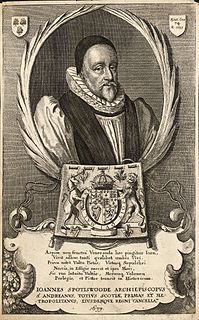
John Spottiswoode was an Archbishop of St Andrews, Primate of All Scotland, Lord Chancellor, and historian of Scotland.
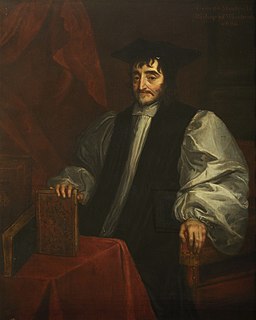
George Morley was an English Anglican bishop, Bishop of Worcester and then of Winchester.
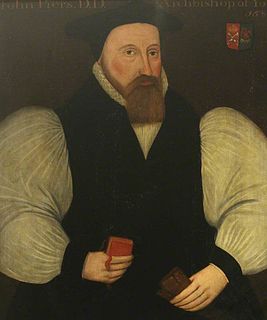
John Piers (Peirse) was Archbishop of York between 1589 and 1594. Previous to that he had been Bishop of Rochester and Bishop of Salisbury.
Nicholas Shaxton was an English Reformer and Bishop of Salisbury.
Robert Tounson — also seen as “Townson” and “Toulson” — was Dean of Westminster from 1617 to 1620, and later Bishop of Salisbury from 1620 to 1621. He attended Sir Walter Raleigh at his execution, and wrote afterwards of how Raleigh had behaved on that occasion.
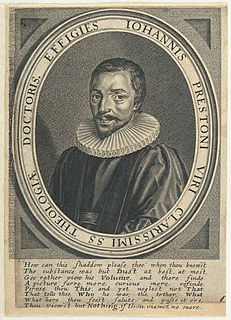
John Preston (1587–1628) was an Anglican minister and master of Emmanuel College, Cambridge.

John King was the Bishop of London in the Church of England from 1611 to 1621.

Francis Turner D.D. was Bishop of Ely, one of the seven bishops who petitioned against the Declaration of Indulgence and one of the nine bishops who refused to take the oath of allegiance to William III.
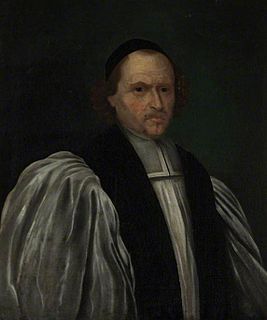
William Piers was Vice-Chancellor of Oxford University from 1621 to 1624, Bishop of Peterborough from 1630 to 1632 and Bishop of Bath and Wells from 1632 until the abolition of episcopacy in 1646, then again from the Restoration in 1660 to his death in 1670.

John Thomas was an English bishop.
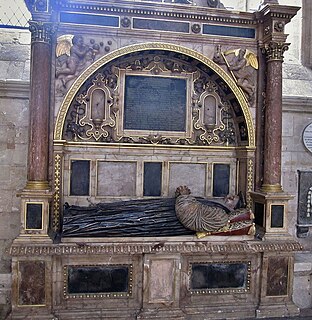
William Cotton was Bishop of Exeter, in Devon, from 1598 to his death in 1621.

Robert Creighton or Crichton (1593–1672) was a Scottish royalist churchman who became Bishop of Bath and Wells.

John Warner was an English churchman, Bishop of Rochester and royalist.
Richard Tillesley (1582–1624) was an English churchman, known for his book defending tithes.
John Pocklington was an English Laudian clergyman and polemicist. By order of the Long Parliament, two of his works were burned in public.
Francis Mason (c.1566–1621) was an English churchman, archdeacon of Norfolk and author of Of the Consecration of the Bishops in the Church of England (1613), a defence of the Church of England and the first serious rebuttal of the Nag's Head Fable put about as denigration of Matthew Parker and Anglican orders.
William Buckner (1605–1657) was an English Anglican priest in the 17th century, who held the office of Archdeacon of Sarum from 1643.
References
 This article incorporates text from a publication now in the public domain : "Bowle, John (d.1637)". Dictionary of National Biography . London: Smith, Elder & Co. 1885–1900.
This article incorporates text from a publication now in the public domain : "Bowle, John (d.1637)". Dictionary of National Biography . London: Smith, Elder & Co. 1885–1900.